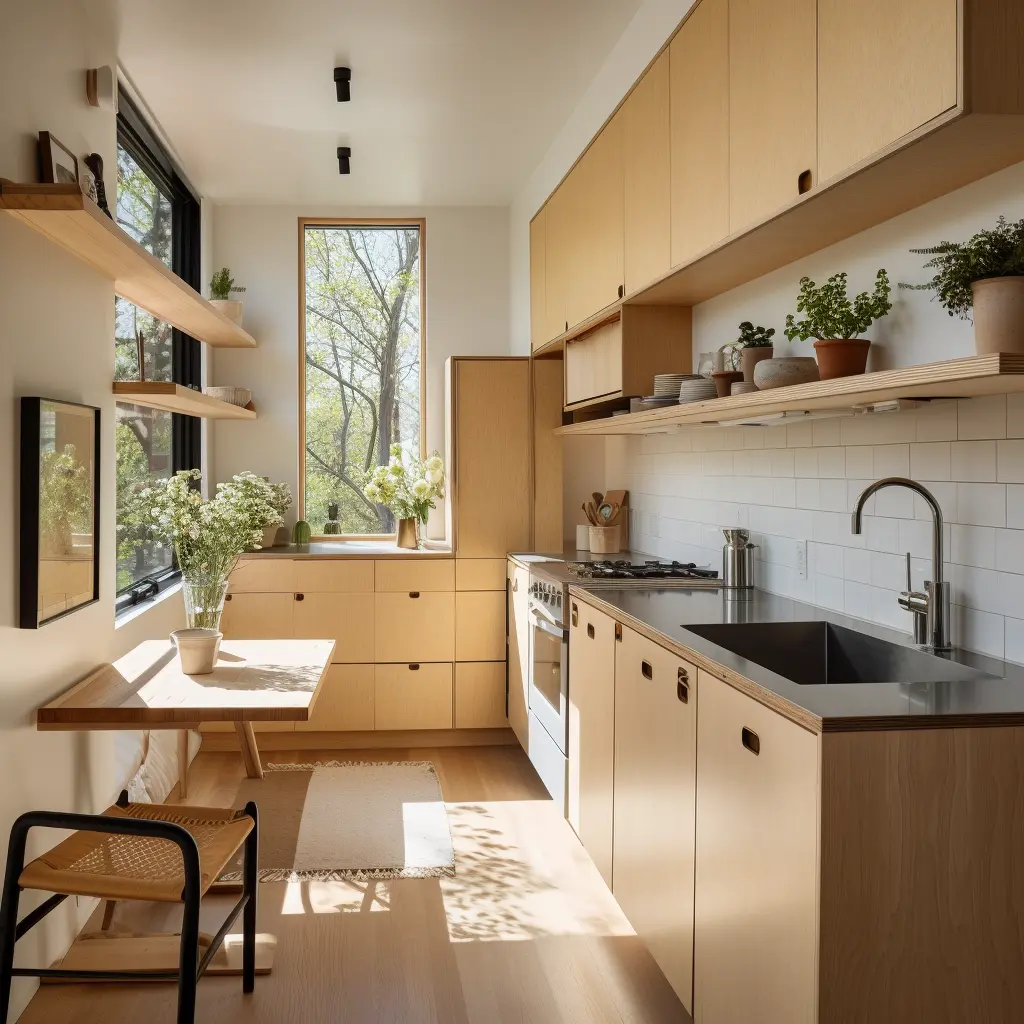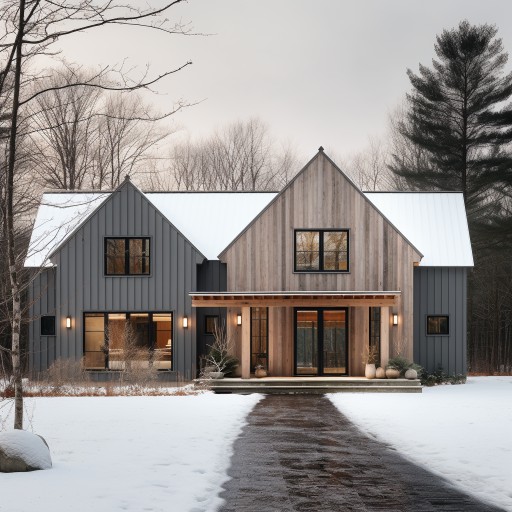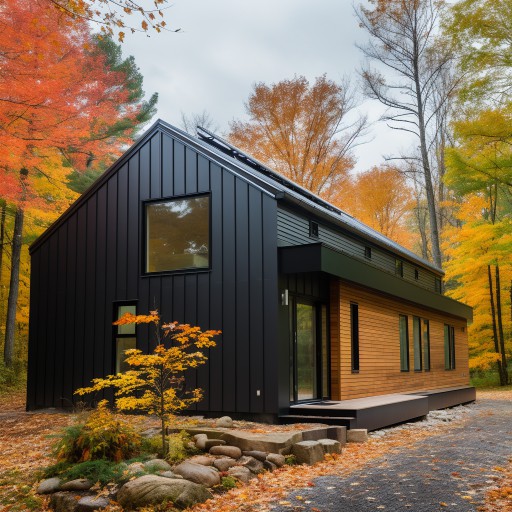The Comprehensive Guide to Off-Grid Houses

co-founder
- The Benefits of Off-Grid Living
- Challenges of Off-Grid Houses
- The Essentials of Off-Grid Homes
- Design and Construction Considerations
- Essential Technologies for Off-Grid Homes
- Off-Grid Living Tips and Resources
Are you intrigued by the idea of living off-grid, independently, and self-sufficiently? Off-grid homes offer a sustainable and eco-friendly way of living, allowing you to detach yourself from traditional public utilities and power sources.
In this comprehensive guide, we will explore everything you need to know about off-grid houses. From the benefits and challenges of an off-grid lifestyle to practical tips and recommendations, we've got you covered.
The Benefits of Off-Grid Living
Living off-grid comes with numerous benefits that contribute to a sustainable and self-sufficient lifestyle. Here are some key advantages:
- Energy Independence: By generating your own power, you are no longer reliant on the grid, reducing your vulnerability to power outages and rising energy costs.
- Environmental Sustainability: Off-grid homes rely on renewable energy sources, such as solar panels, reducing greenhouse gas emissions and promoting a cleaner environment.
- Cost Savings: While the initial investment may be higher, off-grid living can lead to long-term cost savings by eliminating monthly utility bills.
- Self-Sufficiency: Off-grid living encourages self-reliance, as you learn to manage your resources efficiently and become less dependent on external systems.
Challenges of Off-Grid Houses
While off-grid living offers numerous benefits, it also comes with its own set of challenges. Here are some key considerations:
- Initial Investment: Setting up an off-grid home requires an upfront investment in renewable energy systems, water management systems, and other essential technologies.
- Limited Resources: Off-grid living often means relying on limited resources, such as rainwater for water supply and solar energy for power. This requires careful planning and conservation.
- Maintenance and Upkeep: Off-grid systems require regular maintenance and monitoring to ensure optimal performance and efficiency.
- Lifestyle Adjustments: Living off-grid may require adjustments to daily routines and habits, such as managing energy usage and water consumption.
The Essentials of Off-Grid Homes
To successfully live off-grid, certain essential components need to be considered. Here are the key elements of off-grid houses:
Power Generation: Solar Panels and Alternative Energy Sources
Solar panels are a popular choice for off-grid power generation. They harness the sun's energy and convert it into electricity. Other alternative energy sources, such as wind turbines and hydroelectric systems, can also be utilized depending on the location and available resources.
Water Systems: Rainwater Harvesting and Filtration
Off-grid homes often rely on rainwater harvesting systems to meet their water needs. Rainwater is collected, stored, and filtered for various uses, including drinking, cooking, and bathing. Filtration systems ensure the water is safe and potable.
Waste Management Systems: Composting Toilets and Greywater Recycling
Off-grid homes employ composting toilets, which convert human waste into nutrient-rich compost. Greywater recycling systems collect and treat water from sinks, showers, and laundry, allowing it to be reused for irrigation or flushing toilets.
Heating and Cooling: Passive Design and Energy-Efficient Solutions
Off-grid homes prioritize energy-efficient heating and cooling solutions. Passive design techniques, such as proper insulation, orientation, and natural ventilation, help maintain comfortable indoor temperatures without relying heavily on external energy sources.
Design and Construction Considerations
When designing and constructing an off-grid home, several factors should be taken into account. Here are some key considerations:
Sustainable Materials: Recycled and Natural Building Materials
Off-grid homes often utilize sustainable and eco-friendly building materials, such as recycled wood, reclaimed materials, and natural fibers. These materials minimize environmental impact and promote resource conservation.
Green Building Practices: Passive Solar Design and Insulation
Passive solar design maximizes the use of natural sunlight for heating and lighting, reducing the need for artificial energy sources. Proper insulation further enhances energy efficiency by minimizing heat loss or gain.
Off-Grid Home Styles: Shipping Container Homes and Tiny Houses
Off-grid living has given rise to innovative home styles, including shipping container homes and tiny houses. These compact and efficient dwellings offer affordability, mobility, and a smaller ecological footprint.
Essential Technologies for Off-Grid Homes
To enhance the off-grid living experience, certain technologies are essential. Here are some key technologies for off-grid homes:
Battery Storage Systems: Storing Excess Energy for Later Use
Battery storage systems allow off-grid homeowners to store excess energy generated by solar panels or other renewable sources. This stored energy can be used during periods of low energy production or at night.
Energy Monitoring and Management Systems
Energy monitoring systems provide real-time data on energy consumption, allowing homeowners to track and optimize their usage. Energy management systems automate energy distribution and usage, maximizing efficiency.
Smart Home Integration: Automation and Efficiency
Smart home technologies can be integrated into off-grid homes, enabling automation and remote control of various systems. This enhances energy efficiency and simplifies daily operations.
Off-Grid Living Tips and Resources
Living off-grid requires a certain mindset and lifestyle adjustments. Here are some tips and resources to help you navigate the off-grid journey:
Sustainable Lifestyle Practices: Reduce, Reuse, Recycle
Adopting sustainable lifestyle practices, such as reducing waste, reusing materials, and recycling, is essential for off-grid living. It minimizes environmental impact and promotes resource conservation.
Food Production: Organic Gardening and Permaculture
Off-grid homeowners often engage in organic gardening and permaculture to produce their own food. These practices promote self-sufficiency, reduce reliance on external food sources, and ensure a fresh and healthy diet.
Community Building: Joining Off-Grid Communities and Networks
Joining off-grid communities and networks provides support, knowledge sharing, and a sense of belonging. It allows individuals to learn from experienced off-gridders, exchange resources, and build a strong community.
Financial Considerations: Budgeting and Cost Analysis
Off-grid living requires careful financial planning and budgeting. It is essential to consider the initial investment, ongoing maintenance costs, and potential savings in utility bills to make informed decisions.
Living off-grid offers a unique opportunity to embrace a sustainable and self-sufficient lifestyle. By understanding the benefits, challenges, and essential components of off-grid homes, you can embark on this alternative path with confidence. EcoHome is here to guide you through every step of your off-grid journey. Whether you need assistance with finding vetted contractors, estimating construction costs, or accessing valuable resources, we are here to help. Embrace the off-grid lifestyle and create a home that aligns with your values and aspirations.

Renovate with EcoHome
EcoHome empowers homeowners to confidently build healthy and comfortable homes for a fair price.
Sign UpLocations View All →
NY
- Albany
- Binghamton
- Buffalo
- Esopus
- Freeport
- Hempstead
- Highland
- Kingston
- Long Beach
- Marlboro
- Mount Vernon
- New Paltz
- New Rochelle
- New York City
- Niagara Falls
- North Tonawanda
- Olivebridge
- Plattekill
- Rochester
- Rome
- Saugerties
- Schenectady
- Shandaken
- Syracuse
- Troy
- Utica
- Valley Stream
- Wallkill
- Woodstock
- Yonkers
NJ
- Bayonne
- Brick
- Camden
- Cherry Hill
- Clifton
- East Orange
- Edison
- Elizabeth
- Jersey City
- Lakewood
- Middletown
- Newark
- Old Bridge
- Passaic
- Paterson
- Toms River
- Trenton
- Union City
- Woodbridge
CT
PA
- Allentown
- Altoona
- Bethel Park
- Bethlehem
- Chester
- Easton
- Harrisburg
- Hazleton
- Lancaster
- Lebanon
- Monroeville
- Philadelphia
- Pittsburgh
- Reading
- Scranton
- Wayne
- Wilkes Barre
MD
- Abingdon
- Baltimore
- Bethesda
- Bowie
- Columbia
- Dundalk
- Ellicott City
- Frederick
- Gaithersburg
- Germantown
- Glen Burnie
- Potomac
- Rockville
- Severn
- Silver Spring
- Towson
- Waldorf



